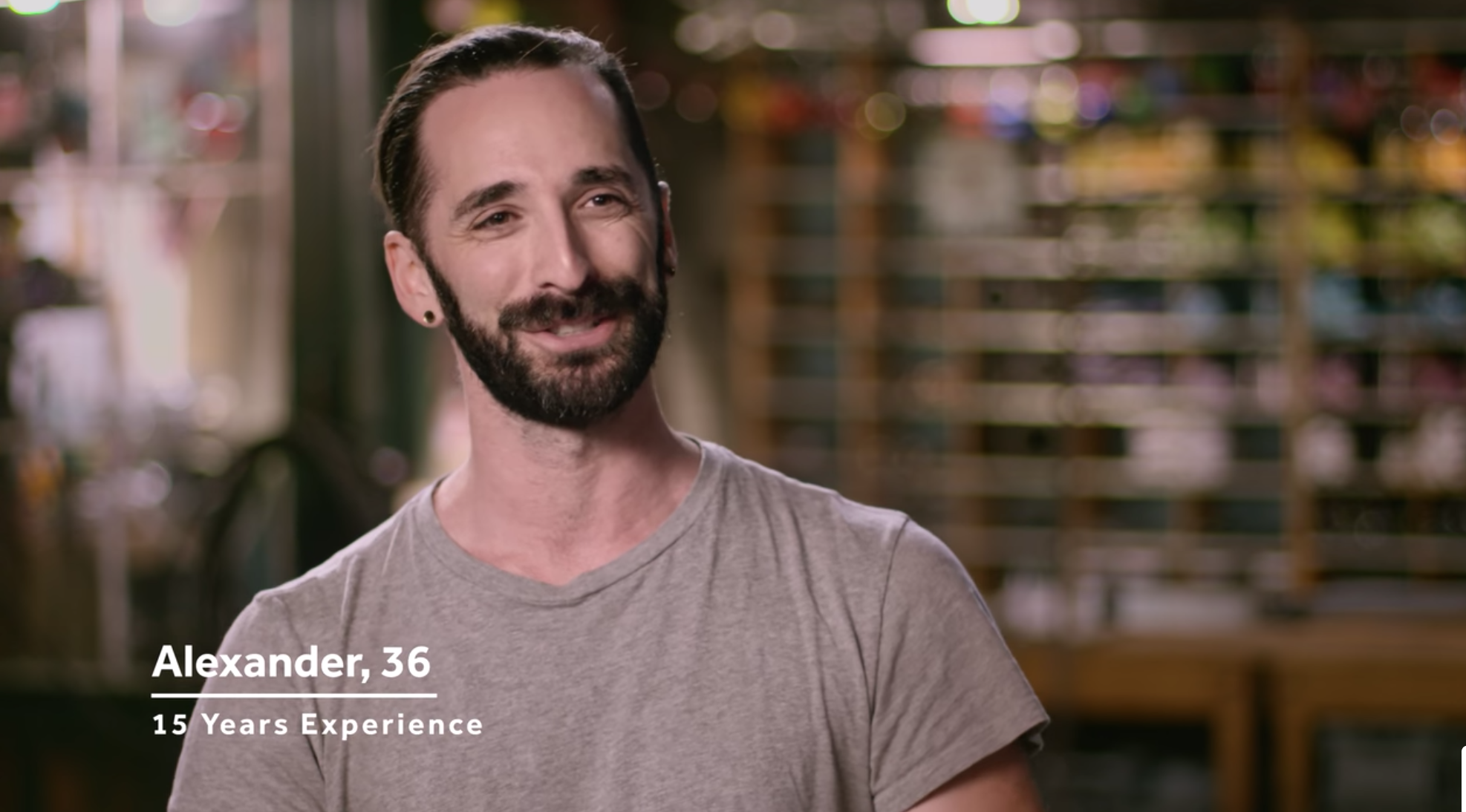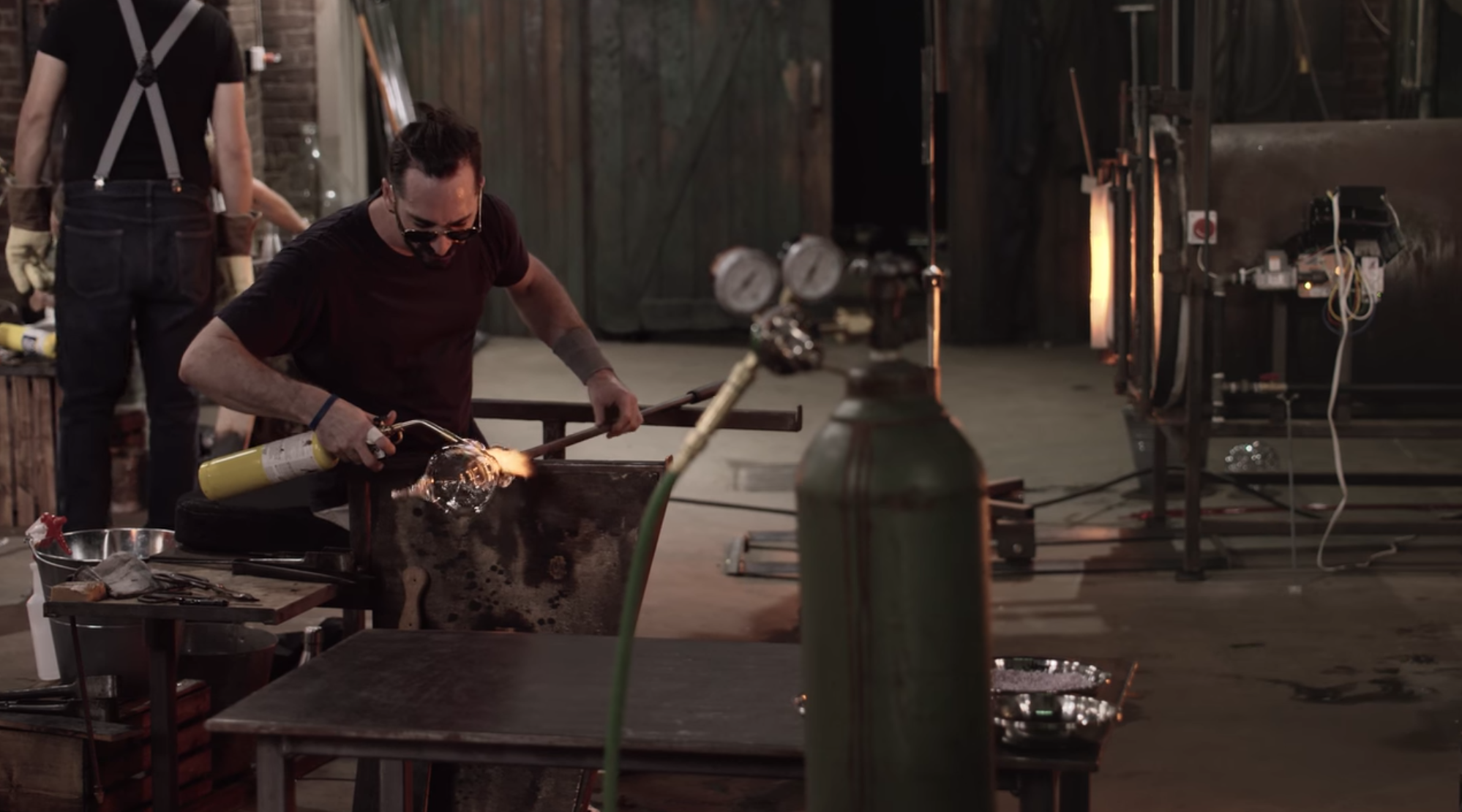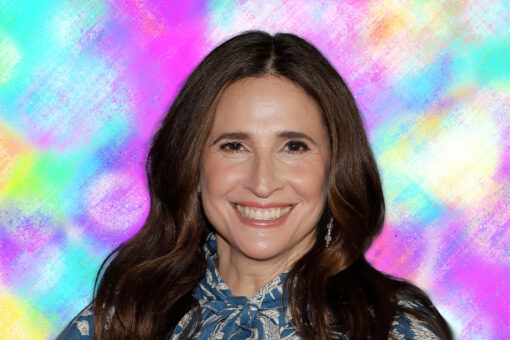Netflix’s new hit reality show is Blown Away, which is a glass blowing competition. While the combination of “glass blowing” and “reality television” seem like they shouldn’t make sense together, they do. The show has the same temperament as The Great British Baking Show — no real drama, everyone cheers each other on, and when a contestant leaves, they all share a group hug. All that, and you get to learn about the art of glass blowing.
One contestant, Alexander Rosenberg, caught our eye from the beginning; his pieces almost always used clear glass and were very intricate. We caught up with the Jewish contestant to chat about how he ended up on the show, what the filming experience was like, and, of course, Dale Chihuly.
How did you get into glassblowing?
I always knew I wanted to be an artist. Maybe strategically, or maybe just kind of naturally, I failed at a lot of other more conventional activities. Like most people who have a public school education, I didn’t have a super full picture of what being an artist could be; I imagined it would be a painter or a sculptor carving bodies out of marble.
I ended up in Southern California after high school — I actually didn’t finish high school at that time; as I said, I had some trouble with some of the normal stuff — and I lived with somebody who was coming home with little blobby glass objects. There was nothing special about them, except I knew he had made them. And something about that was exciting to me: This material that seems so out of reach to be manipulated by a person could be manipulated by hand. I had never thought about it, or heard of it before. In an uncharacteristic way, I ended up enrolling in courses at the community college where he was, starting to play around with the stuff. I ended up going back to art school later on at Rhode Island School of Design.
How did you end up on Blown Away?
Well, honestly — the situation arose from a place of desperation [and] lack of opportunity at the moment. I had a full-time university teaching position in Philadelphia, which I had quit the previous year. I was looking for a way to pay the bills, and I saw a call for this thing.

Honestly, the prospect of being on something characterized as “reality television” was pretty nerve-racking to me. I thought, were they going to put me in a house full of drunken [people]?
But you know, I was also curious about it. There had already been a little bit of pre-emptive critique from the glass world: How is this going to accurately or appropriately represent our community? But I think that the way I do glass is something that would be good to represent.
Did you have any idea how far you’d make it into the competition?
Of course not! I had no idea.
People talk about art as being subjective. I made a not-very-good living out of teaching art at a college level. So, I kind of disagree with that [idea] — there are many measurable factors of succeeding in a project. In something like this, in this populist spectacle, it would be hard to know what to expect: What [would] the metric of quality be? Who was going to determine it? I was, again, pleasantly surprised to find that the person that they had [judge] — and a lot of the guests that they brought in — had a great, sophisticated understanding of the process and the material.
So, once I got there, I started to feel comfortable. I started seeing I was able to produce the things I wanted to produce, and that there was a positive reception, I definitely got a little bit of a confidence boost. I was surprised as anybody when I finally lost. [Laughs.] I was feeling confident on that one.
What was the filming experience like?
It was fascinating. I was there for about six weeks, maybe a little less than that. Everything about it was really pleasant. We stayed in a hotel. We didn’t share a house with limited resources, there were no wild dance parties to keep you up at night… I’m pretty monastic when I’m working in that way. I want to exercise and eat and go home and sleep and get up and do it again. And they were great about facilitating all of that.

I am really absentminded, especially when I’m [in] the studio trying to work on projects. And I’m always like, “Oh, I lost my this.” And there’s someone there whose job it is to find it for you, which is crazy! I’d be like, “I’m looking for my sunglasses.” And then there would be somebody who would turn up with them in their hand and [say], “These? Right here?” So that was kind of fun. The crew was really nice.
Everyone seemed to be rooting for each other — did you feel that vibe on set? There was no classic reality TV villain trope.
Well, I mean, you can see little things — a lot of that is done through editing, they’ll tend to try to create a little bit of drama or conflict on the screen. And [the producers] would ask you things like, “Say you’re gonna win this one!” And that was never really something I would feel super confident to say.
There was a collective interest in having us perform well. It wouldn’t be a good show if nobody made anything decent. Also, it’s a small community, so I knew personally a couple of the people and knew of a couple more. If you didn’t know them before this time, you’ll see them again. It’s not like rolling up with a bunch of strangers you’re never going to see again; it’s a world you’re going to continue to be a part of.
Also there’s a social aspect to glass making. It’s a team-based thing; we’re used to working with people. That’s what professionalism is: If you work with people, you have to know how to communicate gently and navigate interpersonal relationships as artfully as you manipulate the medium.
The New Yorker review of the show called you “the quiet minimalist in a man bun.” Do you feel like this is an accurate summary of your identity?
My partner’s first reaction [to that] was, “I would not call him quiet, I would not call him a minimalist, and that’s not a man bun.”
Yout man-bunned minimalist https://t.co/03JlQKYoGE
— Alexander Rosenberg (@Thetoast77) August 1, 2019
All joking aside, I do think in that setting, I don’t like yelling. It’s what I was saying before — in an art form that requires working with other people as part of the process, I would endeavor to have that be as artful as my handling of my material. I don’t know if I achieved that all the time, but that’s kind of a goal to think about going into the studio for me.
I don’t identify at all with the characterization of minimalist. I think they say that referring to the fact that I tend not to use a lot of color. But, glass is complicated, and clear things are complicated! In fact, to be transparent or translucent is to be more complex in certain ways than it is to be opaque — to see the inside and the outside of the thing at the same time, and to have to deal with both of those views simultaneously. If you have a look at my other work, it ranges into a lot of different topics and branches into a lot of different materials. It’s just what I love about glass! If somebody asked me what my favorite color was, I would tell them clear.
Are you surprised by the reaction to the show? What’s that been like for you?
It was surprising! I didn’t know if this experience was going to be a net positive gain, or if there was going to be some kind of a stigma around volunteering [to do] something like this. It had a lot to do with the quality of the production, and the story that the producers ultimately wanted to tell. I think they did a good job of honoring what we do.
As we were watching it premiere on Netflix that night, every time I would check my phone, there would be hundreds of new followers. And the really life-changing thing about it is just more of an opportunity to sell stuff that I do. I’ve never really been able to support myself just by making things. And I don’t know if that’s really going to change, and I do like doing other things, but the ability to make stuff and have a large audience in this way… I just take a picture, put it on Instagram, say this is on sale, and somebody buys it. People are excited about glass and want to buy nicely made stuff, which is cool. I think the show has done something to educate an audience a little bit in that way.
What do you hope people take away about glass blowing? What would you tell them?
If there was a household name for glass, it would be Dale Chihuly. And that work is important and he’s done so much for the medium in a fine arts context. But I think it’s useful for people to see that there can be a whole different aesthetic with the material, and that it can be used in a more broad multi-disciplinary context. That [glass] can be about other things than just pure optical beauty, and that there are beautiful ideas that are inherent to the material because of its material properties. And that there’s so much opportunity for glass beyond the brightest, most colorful, and sensational.
This interview has been lightly edited and condensed. Header image by David Leyes/Marblemedia.



